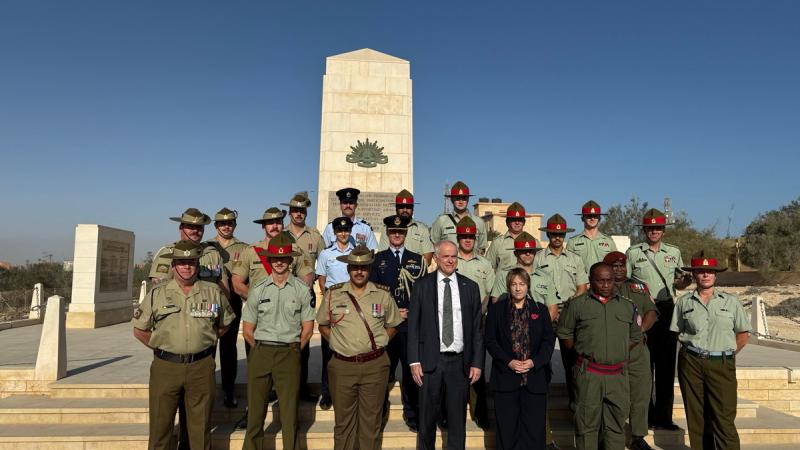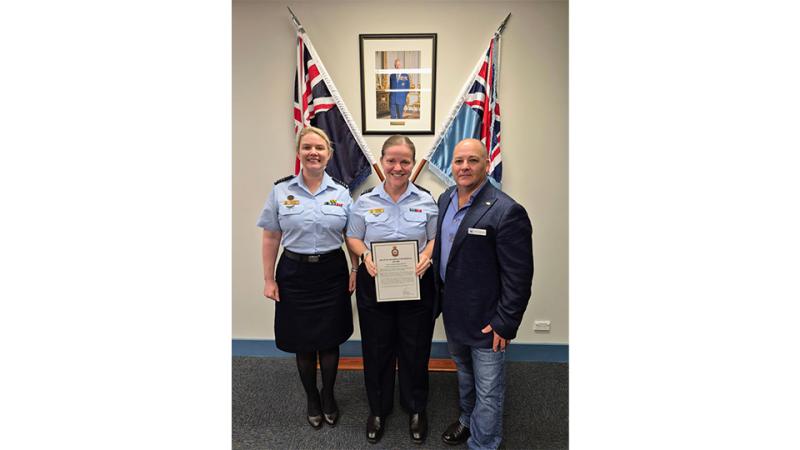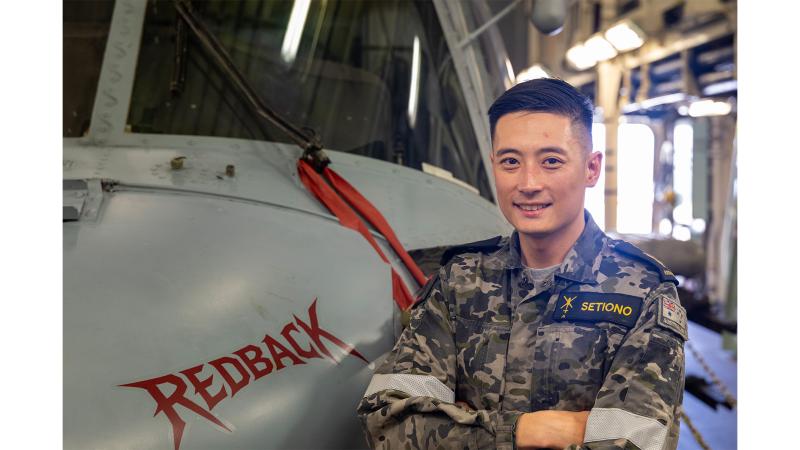29 May 2025
Aspiring female leaders from around Asia and the Pacific have gathered in Australia to forge new relationships and share stories to inspire the next generation of female defence and security personnel.
The Women in Maritime Security (WIMS) program is a dynamic, two-week initiative bringing together women who share the same dedication to duty and spirit of service, to strengthen cooperation, leadership and regional maritime security.
Among the diverse cohort of 17 women participating in this year’s forum are a Japanese Coast Guard officer, a Filipino pilot, an Indonesian Foreign Affairs diplomat, a Bruneian Naval captain and an Australian Border Force inspector, to name a few.
Despite their various nationalities, all the women share a common bond and experience of excelling in male-dominated fields. Now, as trailblazers, they clear a path for other women to follow.
Held across NSW and the ACT, the program is an immersive experience of workshops, field visits and leadership development activities. Topics span from maritime law and counter-piracy strategies, to autonomous ships and improving leadership skills in different environments.
This year marks the first time there has been a participant from Japan; Lieutenant Kirara Fujita of the Japan Coast Guard, a former patrol boat commander, embraced the opportunity.
“This program has given me valuable insight into the Royal Australian Navy,” Lieutenant Fujita said.
“I’ll value the connections I’ve made through this program and strive to do my best in my duty as a future female leader.”
Participants engaged with senior leaders in Australian maritime and Defence sectors.
Deputy Fleet Commander Commodore Anita Williams delivered a presentation on the Royal Australian Navy’s capabilities and highlighted the accomplishments of women in service.
“It’s all about diplomacy and talking together, and the key is to continue to listen and learn from each other, because there’s nothing to stop us getting along,” Commodore Williams said.
'I’ll value the connections I’ve made through this program and strive to do my best in my duty as a future female leader.'
The group shared lunch and conversation with Captain Rebecca Levitt, Commanding Officer of HMAS Kuttabul, who answered questions about female leadership in male-dominated environments.
“We should be who we are, not who we think we need to be, so stay true to yourself and don’t try to be someone you’re not,” Captain Levitt said.
“In future, when we don’t have to have this conversation any more, that is when we know we’ve reached a good balance, but while we’re on this journey to get to that point, it’s important we support each other.”
For Noorhazeerah Haji Ariffin, a mid-career diplomat from Brunei’s Ministry of Foreign Affairs, the program provided a powerful bridge between policy and practice.
“I come from a policy background so what’s emerged for me is seeing the mix of the perspectives of policy and operational backgrounds coming together,” she said.
“Policy doesn’t exist in a vacuum, and it’s interesting to hear the different experiences in maritime security from the women here and see how this comes into play in real terms.”
As WIMS continues to evolve, its impact on empowering women leaders in maritime security is clear.
More than just a professional development program, it is a platform for enduring partnerships, shared purpose and regional resilience, driven by the voices and vision of women shaping the future of our seas.


